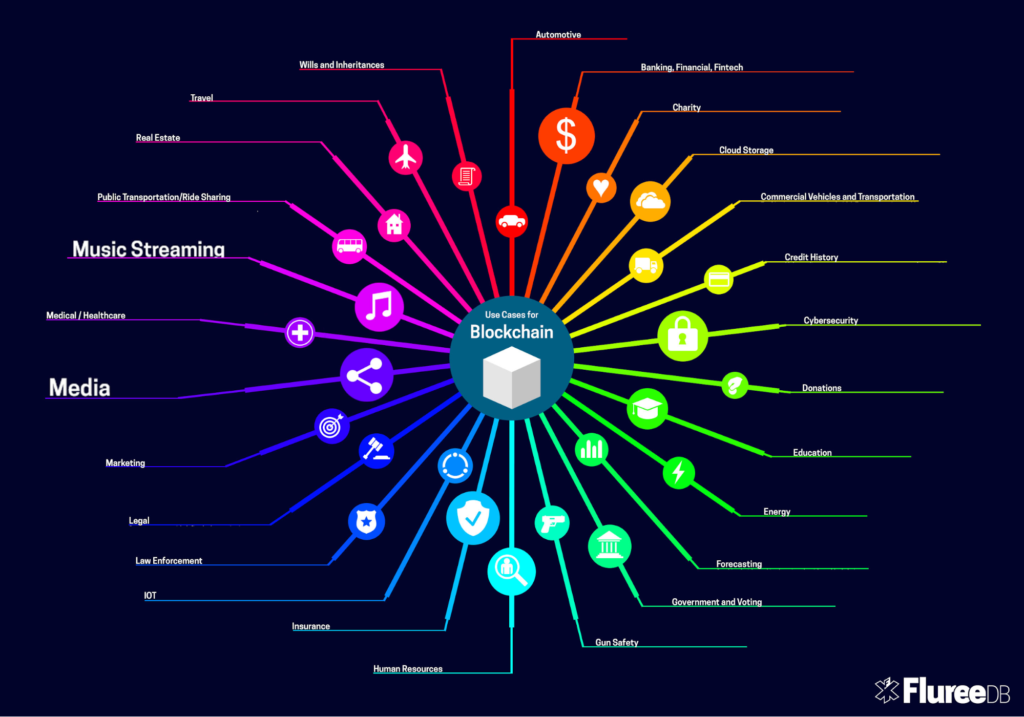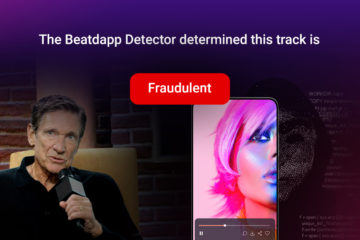Blockchain: the latest tool for con artists and modern snake oil salesmen.
Or maybe not?
Recent research from Deloitte shows a shift from “blockchain tourism” and exploration to the emergence of practical business applications. Nearly 50 percent of companies that participated in a 2018 Deloitte Global survey said they are evaluating blockchain and expect to implement it at some level in the coming year.
The market’s pulling.
This is great news for my team at Beatdapp and others building blockchain applications, where music streaming and media are clearly identified as having strong potential use cases, but enough about us for a second.
What this research marks is a rise in willingness to explore the commercial adoption of blockchain technology across industries. But it also suggests that for executive leaders in legacy and emerging businesses, there remains a healthy skepticism about the advantages (and limitations) of blockchain, and whether they can benefit from the application of this technology.

A couple of reasons for this skepticism: first, during a period where foundational knowledge is still being built and few case studies exist, it can be difficult to conceptualize real-world applications for the technology. Put simply, it’s easier to default to the status quo than to try and imagine a use-case for new technology from scratch.
The second, and more pernicious reason, is that the underlying technology is easily overshadowed by its earliest popularized application, Bitcoin.
Drawing a distinction between blockchain technology and bitcoin is hard, not because there aren’t real differences, but because even just reading this sentence nearly put you to sleep. It’s OK. I get it.
But seriously, wake up, because George Howard, whose work on blockchain and music I highly recommend, coined the most memorable extended analogy that I promise you will not forget, writing in Forbes that:
Bitcoin is to the Blockchain as Porn was to the Internet.
Bitcoin is really just the first instance of a technology utilizing the Blockchain that has gained the public’s attention.
Pornography is credited for being the driving force behind any number of technological advances. In The Erotic Engine: How Pornography has Powered Mass Communication, from Gutenberg to Google, Patchen Barss enumerates numerous technologies that were advanced by porn – from the VCR to ecommerce to webcams and others.
With its seductive allure of easy money, and its ability to be used for all sorts of nefarious transactions, Bitcoin has captured the attention of those interested in such things, and technologies and markets have been developed to facilitate these (and other, less “sexy”…insurance?!) transactions.
Thus, in the same way pornography drove the early development of the Internet, these early adopters of Bitcoin – motivated by the promise of utilizing the nascent technology to satisfy their very specific needs – may end up creating markets and technologies that ultimately lay the foundation for more generalized uses.*
So don’t let the cryptocurrency headlines lead you astray: the early applications are a trojan horse for more mainstream, commercially viable applications. And yes, that pun was intended.
When it comes to conceptualizing the non-currency applications of the technology, I’m partial to the framing from Nolan Bauerle’s CoinDesk article, What is Blockchain Technology? He describes blockchain as “the particular orchestration of three technologies – the Internet, private key cryptography, and a protocol governing incentivization – that result[s] in a secure system for digital interactions.”**
Understanding that the practical output of blockchain technology is the creation of a secure system for digital interactions lets us turn our attention from trying to imagine the technology itself to “identifying areas of friction and outmoded processes that can benefit from the democratization of trust and the ability to more securely verify the authenticity of digital transactions.”***
In posts to follow, we’ll dive into why using blockchain technology to verify the authenticity of digital transactions should strike a chord with the music industry.
* https://www.forbes.com/sites/georgehoward/2015/08/05/bitcoin-is-to-the-blockchain-as-porn-was-to-the-internet/#7b2942cb77a0
**https://www.coindesk.com/information/what-is-blockchain-technology
***https://www2.deloitte.com/content/dam/Deloitte/us/Documents/financial-services/us-fsi-2018-global-blockchain-survey-report.pdf


